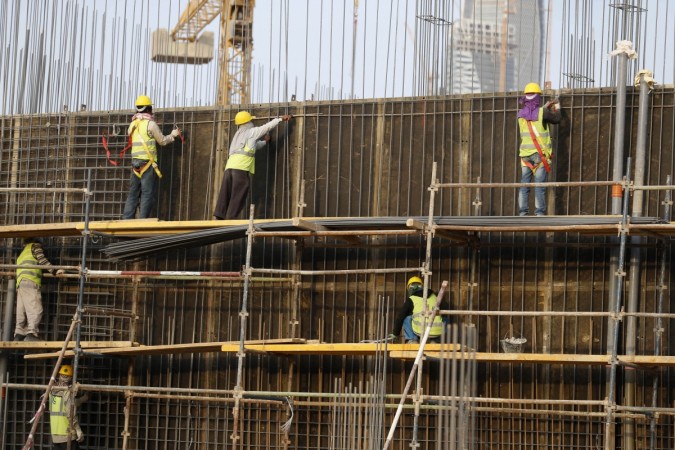
Long queues of Indian workers, who were laid off in Saudi Arabia, now seeking jobs in Qatar suggest that they are more tempted to stay back owing to the high wages paid in the Gulf, even though temporarily considering the Indian government's offer of free boarding, lodging and plane tickets to India if they decide to do so before Sept. 25.
According to the Gulf Labour Markets and Migration programme, roughly half of the 50 million people in the Gulf Co-operation Council (GCC) are non-citizens. In Qatar and the UAE, it is more than 85%. In another unpublished study by Michael Clemens for the Centre for Global Development, it was revealed that those who moved to the UAE earned 250-350% more than those who had their contracts cancelled at the last minute because of the property-price crash in 2008.
Under the kafala (sponsorship), migrant workers in Bahrain, Kuwait, Oman, Qatar, Saudi Arabia and the UAE – collectively the GCC – are tied to their employers. They may not switch jobs or, in some cases, leave the country without their employer's permission. Despite it being illegal, many still have their passports confiscated.
A study by Suresh Naidu of Columbia University, Yaw Nyarko of New York University, and Shing-Yi Wang of Wharton School of Business revealed that in the UAE, wages for foreigners were 27% lower than they would be if firms had to compete with each other for labour. Cash-strapped employers of some companies accentuated the crisis for Indian workers in very much the same way as it refused to pay them wages and also refused them to leave the country.
The rational of having such few border restrictions for entry of migrants is balanced by how few rights are granted to the workers. Gulf citizens don't feel threatened because the workers can never become citizens or get a chance to enjoy any welfare policies. But despite that, Glen Weyl of Microsoft Research and Yale University suggests that when compared to the OECD countries, which send lots of aid but maintain border restrictions, GCC countries do more (per head) to reduce global income inequality.
According to Weyl, if the OECD countries open their borders to the same extent as Kuwait, which has two migrants for every native, global inequality could be cut by a quarter. Bahrain and the UAE have relaxed kafala rules to the extent that they have scrapped exit visas and allowed migrants to switch jobs.
Indian workers stranded in Saudi have been offered the same option by the Saudi government – to allow transfer of Indian employees who have lost their jobs to any other company within Saudi Arabia. In order to support their families and send remittance back home, it is likely that migrants will continue to mop floors and sweat on construction sites.

















